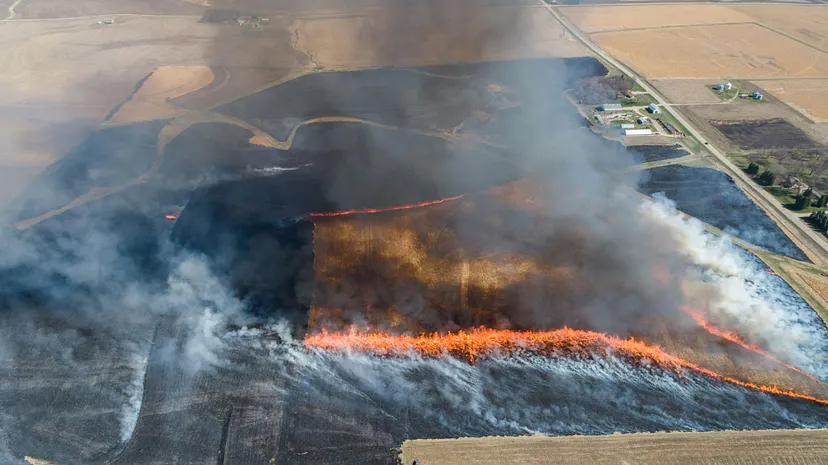Los Angeles Wildfires: An Environmental Wake-Up Call
Today, California is indistinguishable from a biblical hellscape, and tomorrow the sun will rise over another blood-red sky as the fires continue to rage on. There has been an increasing amount of political noise regarding climate change as a whole, but events like this should serve as an eye-opener, stressing climate change as a real and worsening issue.
Los Angeles Wildfires: An Environmental Wake-Up Call

Starting on Tuesday, January 7th at around 10:30 a.m., fires began sprouting all across Southern California. As of the 9th, at least five people have died from the fires, and it seems the worst is yet to come. Currently, the cause is unknown, the blame being shifted to many different factors.
Causes
While no specific cause has been determined for any of the Californian wildfires, it is known that wildfires can spark for a multitude of reasons. This time of year is extremely dry and provides the perfect conditions for a fire to spark. On top of this, while the exact impact of climate change on this event cannot be measured, climate change is definitely playing a role in catalyzing the spread of the fire and allowing more fires to ignite in the future. California has been exceptionally dry this year, with the Los Angeles area only receiving 0.16 inches of rain in the past three months. As the climate continues to fluctuate, degree by degree, more disaster-level events such as these fires can be expected.

Impact
The impacts of this fire are stated to be “astronomical.” Thousands of homes are expected to burn, which will cost billions in damages. However, there are more direct consequences of these fires. As they burn, the fires could release over a hundred million tons of carbon dioxide and other greenhouse gases into the atmosphere. With this, wildlife are also forced to evacuate, which disturbs Californian ecosystems. While forest fires can be beneficial in certain cases, allowing for the growth of new forests, the current Californian fires are far from an ideal controlled burn.

Denial
While these wildfires should serve as a wake-up call for our future, climate change denial has become popular rhetoric in recent years. Donald Trump, the President-elect, has decided to blame both Californian Governor Gavin Newsom and President Joe Biden for these wildfires. He has stated that Newsom refused to sign a “water restoration declaration” that would’ve allowed more water to flow throughout California. In actuality, the water restoration declaration Trump referenced does not exist, although Newsom did sign legislation that redirected water to flow into habituates in the Sacramento-San Joaquin Delta in order to protect an endangered species of salmon. Regardless, that isn’t the point, and the impact of the Delta project on the current fires cannot be fully determined. The point is that it is disingenuous to speak on the causes of this fire without falling onto the topic of climate change. In avoiding the topic altogether, the slippery slope of climate change we find ourselves heading down becomes that much steeper.

Recap
Today, California is indistinguishable from a biblical hellscape, and tomorrow the sun will rise over another blood-red sky as the fires continue to rage on. Millions of Americans will suffer the detriments from this event, one that perhaps couldn’t been avoided, but was worsened as an impact of our warming planet. There has been an increasing amount of political noise regarding climate change as a whole, but events like this should serve as an eye-opener, stressing climate change as a real and worsening issue.
